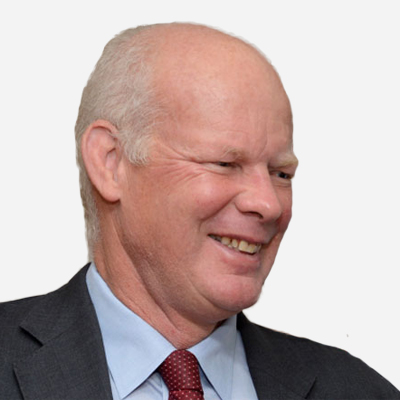Geospatial Knowledge Infrastructure
Pre-Conference Training Program
Geospatial Knowledge Infrastructure and Evolution of the Stakeholder Ecosystem
7-9 May 2022
Venue:
7-8 May 2022 / Inntel Hotels Amsterdam Zaandam
9 May 2022 / Taets Art & Events Park
With the onset of the fourth industrial age, geospatial infrastructure being considered one of the critical enabling pillars and is fundamentally important to the digital economy. Over the last few years, we have experienced a dimensional shift in overall recognition and narratives about the power of geospatial and its value proposition for the society, the economy, and the environment. Geospatial infrastructure today comprises of spatial data infrastructure, positioning network, legal and policy frameworks, as well as the delivery of geospatial services across diverse sectors. It serves as the foundation of digital twin leading to greater demand for authoritative, accurate, updated and accessible data platforms. As the concept has evolved, it has become increasingly critical to the next generation economy. Considering the evolving role of National Geospatial Agencies (NGAs) towards national development, it would be their responsibility to lay the foundation not only of the national geospatial infrastructure and industrial strategy but also to enable all round development of the country.
The geospatial ecosystem is far wider than ever before, across the digital ecosystem’s modeling and applications communities, and across most industry sectors. The geospatial ecosystem now needs to play into this wider digital, or knowledge ecosystem. Focusing on data and information alone does not achieve this, so its time to move up from data value chain to knowledge value chain through Geospatial Knowledge Infrastructure (GKI). This GKI leverages many new opportunities enabled by 4IR. It accelerates automation and knowledge-on-demand.
During phase 1 of the GKI campaign, 1st GKI global training program on ‘Transformation of National Geospatial Agencies’ was organized in October 2021 for the officials of NGAs across the world, which touched upon the technology trends, and benefits of transformation for NGAs. Following up on that, during phase 2 of the campaign, the 2nd GKI global training program on ‘Evolution of Stakeholder’s Ecosystem’ will be conducted as part of Geospatial World Forum 2022 in Amsterdam, focusing on the changing geospatial ecosystem and its convergence with the broad digital ecosystem in the 4th Industrial Revolution.

Objectives
The training program will aim to develop understanding regarding:
Agenda
Day 1: 7th May 2022
AGENDA
Welcome Coffee
Ice breaker and expectation setting

Anamika Das

Dr. Shivangi Somvanshi
PART – I: GEOSPATIAL KNOWLEDGE INFRASTRUCTURE (GKI) AND INTEGRATED GEOSPATIAL INFORMATION FRAMEWORK (IGIF)
Lesson 1: Introduction to the Geospatial Knowledge Infrastructure (GKI)
Geospatial Knowledge Infrastructure leverages many new opportunities enabled by the 4th Industrial Revolution. It accelerates automation and knowledge-on-demand. It is as relevant for all nation. It supports the United Nations Vision 2030 agenda and its Sustainable Development Goals. Integrated Geospatial Information Framework is the framework of choice to implement the Geospatial Knowledge Infrastructure.
The session will focus on- What is Geospatial Knowledge Infrastructure: Vision, definition and principles
- Key elements and recommendations of Geospatial Knowledge Infrastructure
- Value proposition and relevance of GKI in today’s context
- GKI complimenting other initiatives
- Small Group Discussions: Challenges that GKI can help overcome

John Kedar
Coffee Break
Lesson 2: Integrated Geospatial Information Framework (IGIF) and Sustainable Development
The IGIF is a multi-dimensional United Nations mandated Framework, aimed at strengthening national geospatial information management arrangements in countries, that responds to clear policy needs. The IGIF acts as a catalyst for economic growth and opportunity, and stimulates improved decision-making for national development priorities and the Sustainable Development Goals (SDGs).
The session will focus on- What is the need for IGIF?
- The key components and pathways of the IGIF
- Overview of how the IGIF is being used globally, including practical IGIF national use/implementation, and the partners working on its delivery
- Development on National Action Plans
- Case Study: The use of the IGIF at national level

Dr. Greg Scott
Lunch Break
Lesson 3: Integrated National Policy Framework and Strategy
Government Policy often develops in isolation, with sector policies and cross-cutting policies such as data often disjointed, eg transport policies may consider specific data issues in isolation or national data, geospatial and EO policies may be incoherent. There are also often major policy geospatial data policy gaps as technology changes the geospatial environment. Need is to encourage and build an integrated policy framework that incorporates geospatial knowledge needs.
The session will focus on- Policy challenge facing nations
- GKI Integrated Policy Framework initiatives
- Sectoral policies impacting geospatial domain, including open data, space and digitization
- Integrated approach to national policies
- Small Group Discussions: Geospatial Ethics
- Case Study: a national strategy that focuses on geospatial knowledge

Francesco Pignatelli

Ray Boguslawski
Coffee Break
PART – II: DIGITAL INFRASTRUCTURE AND GKI
Lesson 4: Digital Infrastructure for enabling Geospatial Knowledge Services
Fourth Industrial Revolution will transform and re-model everything, including the geospatial ecosystem. With 4IR being underway, changes will continue to accelerate in the industrial world and it’s important that companies, both geospatial and non-geospatial, learn to adapt rapidly. Also, businesses and governments need to adapt more quickly than ever before. They need to be as agile and flexible as possible as they are being asked to do more with less. Digital infrastructure provides foundational services that are necessary to the information technology capabilities of a nation, region, city or organization. In the context of GKI, digital infrastructure provides the underlying digital backbone to effectively make use of the Geospatial Knowledge for improving the economy and quality of life of a modern nation.
The session will focus on- Concepts of data centers, platforms, and system required for enabling GKI
- Cloud computing and how it enables GKI
- Spatial data infrastructure and transformation from data to knowledge
- Applications, APIs, Integration, standards for GKI
- Digital Twin & Metaverse

Siva Ravada

Aaron Addison
Welcome Reception
Day 2: 8th May 2022
AGENDA
PART – III: ENHANCING GEOSPATIAL INFORMATION MANAGEMENT
Lesson 5: Positioning Infrastructure
GNSS has opened up Geospatial Knowledge across society and demand for increased precision continues to rise and new uses found, enabling new knowledge services. However, effective geodetic networks, CORS networks and indoor navigation technologies are not uniformly available, or their use can be improved.
The session will focus on- GNSS
- Gravity and height network
- Planning and roll out of modern positioning infrastructure including CORS
- Introduction to indoor positioning
- Terrestrial data collection developments
- Future developments
- CORS case study

Christopher Daub

Ruban Jacob
Lesson 6: Developments in Earth Observation
Earth observation have radically transformed in the last decade or so, as a variety of new observation platforms have become available, while scientists and researchers have been inundated with new data.
The session will focus on- The range of earth observation satellite data types and the utility of Different types of EO sensor/data (including MS, IR and SAR)
- Satellite Earth Observation constellation developments
- EO data processing through ML/AI
- Sources of open EO data.

Ananya Narain
Coffee break
Lesson 7: Trusted and Authoritative Foundation Data
In the context of GKI, Foundation Data refers to national data that is substantially geospatial in nature and seen as part of the national digital infrastructure meeting national public task requirements. Fundamental geospatial data, defined by the UN-GGIM, is a sub-set of foundation information that is increasingly considered a ‘national high value dataset’. In GKI, fundamental geospatial data is dynamic, continuously updated, findable and accessible. Students need to understand the fundamental geospatial data themes and the changing roles and workflows of national mapping agencies in delivering them.
The session will focus on- Range of GKI foundation data types
- UN GGIM Fundamental data themes
- Changing roles of national geospatial agencies
- Developing workflows to provide up to date data – automating foundation data collection and maintenance.
- National Mapping Agency interfaces with the business customer.
- Case study on Ordnance Survey Lusaka project

Clare Hadley
Lesson 8: Business models for sustainable Geospatial Knowledge Infrastructure
Mapping/Geospatial agencies have traditionally worked in house or through specific project contracts to deliver mapping, data and data services. Increasingly geospatial data and its derived geospatial knowledge are core to many aspects of digital society, and single agencies cannot deliver efficiently or effectively on their own. Indeed, they may not survive on their own and need to find new business models, including those that allow transformation in outputs in resource constrained environments.
The session will focus on- Business Model options and their applicability to individual nations.
- Funding sources for the infrastructure.
- Licensing mechanisms to monetize data.
- Monetization of a knowledge value chain.
- Access to development funding

Dr. Zaffar Sadiq Mohamed Ghouse
Lunch Break
PART – IV: MOVING UP THE VALUE CHAIN: DATA TO KNOWLEDGE
Lesson 9: Automated Knowledge Generation through Analytics
It is recognized that the knowledge necessary for solving many challenges is constructed over time and cannot be delivered ‘on demand’. However, users along the value-chain seek to generate knowledge quickly or the moment passes, the impact diminishes. With knowledge, decisions are made, benefits accrued and capital realized. In our ‘on demand’ world, ‘timely’ is not days and weeks but minutes and seconds for both humans and machines. Value, therefore, lies in effective and efficient methods to extract user-specific knowledge from vast amounts of data, information and existing knowledge from relevant sources anywhere.
The session will focus on- How applications, modelling and AI are helping develop knowledge from data
- What are the developments in GIS
- GeoAI, Digital Twin
- Consumer applications
- Knowledge visualization
- Assurance and bias
- Case Study – automation

Jill Saligoe-Simmel

Dean Angelides

Kshitij Purwar
Coffee Break
Lesson 10: Partnerships / Collaborations for co-creating value in data and knowledge
Given increasing technological change and the increasing sources of data and analytics across the private sector, partnerships and collaborations will be increasingly common in co-creating value in data and knowledge. Costs and benefits will be shared across the value-chain, which crosses government, industry and citizen. New partnerships will emerge – be they ad hoc collaborations to solve singular challenges, long-term business partnerships, or public-private knowledge co-creation partnerships, distinct from the PPPs of yesteryear.
The session will focus on- Collaboration in context – the range of opportunities with examples
- Managing partnerships
- PPP models and global examples

Dr. Simon Musaeus

Albert H. Anoubon Momo

Dr. Rosemarie Mijlhoff
Day 3: 9th May 2022
AGENDA
Lesson 11: Geospatial Knowledge on the Cloud
Advancing map and spatial data management on digital infrastructure at the national, regional, city and urban level.
The session will focus on- Map production and scaling on demand
- Cross regional data delivery and geospatial data exchange for production
- Integrated data workflows
- Cloud, sensors and automation
- Security and Sovereignty on the cloud
- AI and ML – leading the work of automation and feature extraction from growing Geospatial data sources

Phill Cooper
Lesson 12: Standards for Geospatial Knowledge Infrastructure
The need for standards is well understood, and to an extent so is the source of standards through IHO, ISO, OGC and others. But how a nation or agency should select and implement standards in an integrated fashion is often not understood. Further, within the geospatial knowledge infrastructure we seek to deliver knowledge services as well as data services.
The session will focus on- Open Standards
- The Tier approach to standards and Open Standards
- Key types of geospatial standards
- Geospatial standards for a geospatial knowledge infrastructure
- How to use select and implement standards, both from a business and a national perspective
- Access to organisations, documentation, emerging standards and best practices.
- Deep Dive: The Netherlands approach to standards

Dr. Ingo Simonis

Paul Janssen
Coffee Break
PART – V: GKI VALUE PROPOSITION FOR USER INDUSTRIES
Lesson 13 – GKI Value Proposition for User Industry Sectors – PART - I
GKI seeks data producers, the applications community and the users to be far more closely aligned, with greater understanding of the whole value chain. But the benefits in each sector will be different, and likewise the use of data and technology to create knowledge for human and machine. There is often a large gap between communities; this lesson seeks to get data producers to consider users and their applications, and users to understand data producers.

Mark Noort

Kirsi Forss

Lucas Bublitz
Lunch Break
Lesson 14 – GKI Value Proposition for User Industry Sectors – PART - II
GKI seeks data producers, the applications community and the users to be far more closely aligned, with greater understanding of the whole value chain. But the benefits in each sector will be different, and likewise the use of data and technology to create knowledge for human and machine. There is often a large gap between communities; this lesson seeks to get data producers to consider users and their applications, and users to understand data producers.
The session will focus on- Explore these value propositions in the context of student’s own nations
- To provide students with the opportunity to embed GKI concepts considered during the course into one sector specific use case
- Confirmation of learning

Alex Harper

Alexander Worp

Shirish Ravan
Lesson 15 – GKI Value Proposition for User Industry Sectors (Group Discussion):
The session will focus on- Explore these value propositions in the context of student’s own nations
- To provide students with the opportunity to embed GKI concepts considered during the course into one sector specific use case
- Confirmation of learning
Coffee Break
Keynote addresses
- Address: “Transformative Leadership and Role of National Mapping Institutions in Digital Age”
- Address: “Kadaster’s engagement and Value proposition for user industries”

Bryn Fosburgh

Frank Tierolff
Closing session
Session will include- Course feedback to GW Team
- Wrap up remarks
- Presentation of Certificates
- Closing Remarks


















